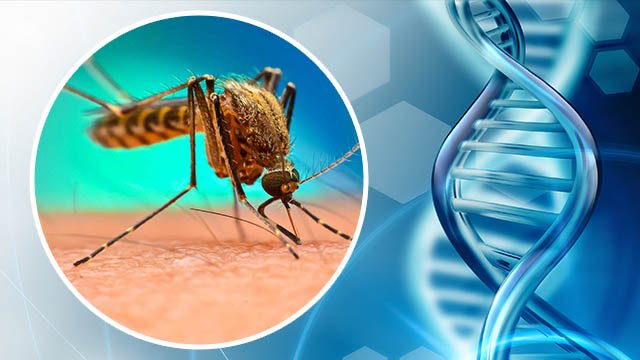Jeffrey Smith explains why this is NOT a good idea in his interview with Michael Carroll from Aminewswire.com:
“Scores of Florida state lawmakers last week urged federal health officials to allow the use of genetically modified mosquitoes to fight the spread of the Zika virus.
Opponents of the idea, however, fear that the genetically altered insects, which were developed by a British company, would leave a sting of unintended consequences in the environment.
A proposed field test of the altered mosquitoes, meanwhile, has proved controversial in the Florida Keys, where a mosquito control board has encountered vocal opposition to the plan. The Florida Keys Mosquito Control District has moved to place nonbinding referendums about the trial on two county ballots on Nov. 8 to gauge voter sentiments prior to granting final approval.
In a letter to the secretary of the Department of Health and Human Services and the Food and Drug Administration commissioner, 61 members of the Florida House of Representatives called on the federal government to give the state permission to use modified mosquitoes, dubbed “frankenskeeters” by some, in the battle against the Zika virus.
“If the federal government follows its normal bureaucratic processes, it might take years for Florida to access this technology,” the lawmakers said in the Sept. 6 letter. “Such a delay presents an unnecessary health risk to the people of our state. Red tape is never an acceptable justification for the loss of human life.”
A department spokesman told AMI Newswire that HHS would be sending a timely reply to the lawmakers, but had no further comment.
The company that developed the modified mosquitoes, Oxitec, has reported that their use in the Cayman Islands, Brazil and Panama has led 90-percent decreases in local Aedes aegypti populations — the mosquito species linked to the spread of Zika.
Zika has become a public health concern in Florida because it can be sexually transmitted, and if pregnant women contract the virus, their babies can be subject to birth defects.
To suppress populations of mosquitoes, Oxitec uses a biological technique that doesn’t involve chemical spraying. The company breeds male mosquitoes with a genetic variation that causes their offspring to die before reaching adulthood. So when Oxitec’s modified mosquitoes are released into a target area, they breed with local mosquitoes and drive down the insect populations, according to the company.
“Additionally, the males released die within four to seven days, resulting in a proprietary non-persisting, environmentally friendly solution of mosquito control,” a company news release said.
But opponents such as Jeffrey Smith, the executive director of the Institute for Responsible Technology in Iowa, say the release of modified mosquitoes could backfire, resulting in unintended consequences that could harm the state’s economy and environment.
“It’s not rocket science — it’s far more complex,” Smith, an author and consumer advocate, told AMI.
He said that the science of genetic modifications is in its infant stage and that use of modified mosquitoes in local environments has not been sufficiently studied to assure safety.
“They are using this emergency (in Florida) to rush into production this very risky technology,” Smith said.
A number of the modified mosquitoes released would be females — which are the ones that bite humans — due to imperfections in the company’s extraction process, he said. These modified females could contain undetected allergens and create additional problems by biting humans, Smith said.
Furthermore, not all of the offspring created by the mating of modified mosquitoes and local mosquitoes would die off, he said. About 3 percent may survive, as was found in past trials, and that percentage could increase if tetracycline — a common antibiotic — is present in the environment, Smith said.
Thus, the introduction of the modified mosquitoes could permanently alter the gene pool over time, he said.
Other scenarios include the possibility that local Aedes aegypti mosquito populations could plummet, causing other species of disease-carrying mosquitoes to fill the void and creating the same disease risk — or worse, Smith said.
“At the minimum, the company has not done sufficient research to cause numerous scientists and numerous onlookers to be satisfied,” he said.
And even if the modified mosquitoes worked as planned, Smith said, foes of genetically engineered organisms could decide to stay away from Florida in droves, hurting the Florida tourism industry.
A recent FDA environmental assessment of Oxitec’s modified mosquitoes, however, found that the proposed trial in the Florida Keys posed no significant environmental risks. The assessment, which was released last month, was based on a review of thousands of public comments on the project.
“We are confident the FDA, HHS and other government agencies will do everything within their power to ensure the safety of the American people, including making available novel vector-control technologies …” said Hadyn Parry, Oxitec’s chief executive officer, in a prepared statement.


